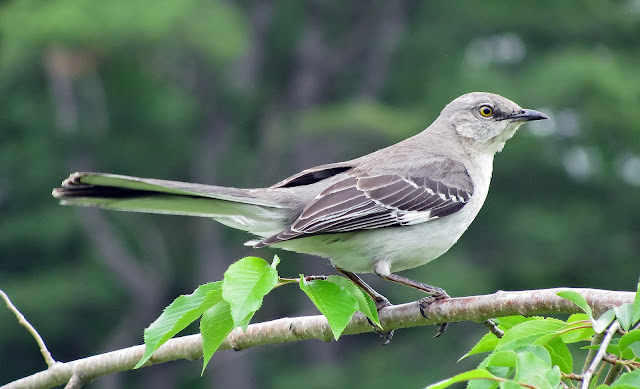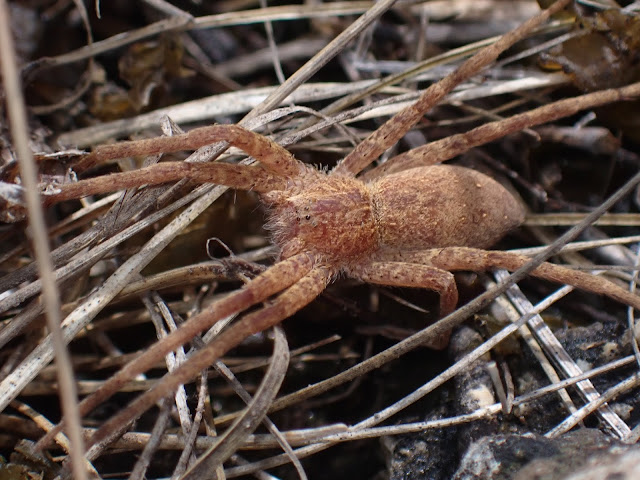Mockingbird Song
 |
| Northern mockingbird - from Wikipedia |
 |
| Our mockingbird |
Male mockingbirds are the singers and they are famous for learning and repeating the songs of other birds. Then they show off by singing all their melodies strung together in a row. Bird scientists (called ornithologists) think they sing like this to impress the females for mating and to warn other male mockingbirds that this is their territory. Older males have learned more songs and that may impress the females just like a buck with a big antler rack impresses a doe.
They not only learn the songs of other birds but will also remember other sounds and include them in their performances. Two friends of ours were talking about their mockingbird experiences in a radio interview. One had a mockingbird nesting outside his bathroom window and it would repeat the sound of the toilet flushing. The other man recalled his mockingbird that did such a perfect imitation of his alarm clock that he would reach up to turn it off!
 |
| Carolina wren- from Wikipedia |
Challenge:
- Concentrate on the bird call below. A mockingbird will repeat a phrase 3-5 times before changing to the next phrase.
- Listen to this recording of a Carolina wren.
- Now listen to the recording of our mockingbird and see if you can hear it sing the wren's song in between all the others. Maybe you will be a birder!
Fun fact - its scientific name is Mimus polyglottos
Mimus means mimic, to imitate, and polyglottos means many tongued.
Here is a more musical rendition by birds of Mozart.


Comments
Post a Comment